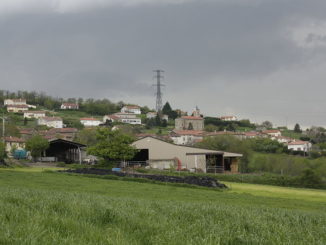During the setting up of the monitoring committee of the CAP reform on September 7, the French Agriculture Minister Stéphane Le Foll presented the axis of the French position at this stage of the EU negotiations, before having talks with its counterparts.

In front of an audience of fifty representatives from farming and agrifood sectors, NGOs, local authorities and administration, he outlined the following seven priorities:
– To defend a coherent EU budget to be focused on growth and employment, and to maintain the current CAP budget;
– To maintain market regulation tools, including current vineyard planting rights and sugar quotas until 2020;
– To improve the Commission proposals on food chain functioning in the single CMO project;
– To get a fairer distribution of direct payments (Pillar 1) between Member States in ensuring that the interests of French farmers are preserved. The Minister reiterated his commitment that the budget for rural development in France would be increased by a fairer distribution of Pillar 2 money between Member States;
– To facilitate greater equity in the distribution of direct payments between farmers, gradually leaving the French system of historical references that froze inequality. The terms of this convergence should be discussed internally, but the Minister recalled that the Commission proposal to have a flat rate payment in 2019 was not acceptable since the large diversity of farmholdings in France has to be taken into account. The Minister stressed the importance of targeting direct aid in a way that preserves certain sectors such as polyculture farming systems which create value added and employment in the territories. Behind that, he recognizes that the high level of single payment per hectare in Western France dairy farm holdings could be impacted by a national flat rate and seeks a hybrid system that promotes the first 50 hectares;
– To support the principle of greening the Pillar 1, linking payment to 30% of direct payments in respect of three environmental criteria proposed by the Commission. He recalls its opposition to a menu approach in this framework. Regarding the details of three criteria, Le Foll is in favor of more flexibility in the maintenance of permanent grassland, a firm commitment to preserving the diversity of cropping and he decided in favour of the 7% of ecological focus areas, even if the way to achieve them should be discussed further;
– To lead in the Pillar 2 choices in line with the ambition to encourage certain production systems, to allow agriculture to commit to new agricultural models ecologically and economically efficient. Finally, the Minister recalled the key role of regional authorities in the management of aid relating to rural development even if he concluded to the need of a national framework which guarantee a national consistency.





